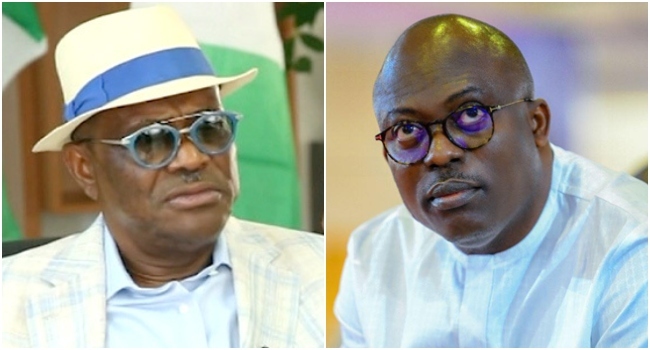Former Niger Delta militant leader Asari Dokubo has publicly accused President Bola Tinubu of enabling what he describes as a systematic attempt to undermine Governor Sim Fubara’s administration in Rivers State. The allegations, made during a candid interview on Arise Television’s Morning Show, have brought to light growing tensions in one of Nigeria’s most politically significant states.
Speaking with palpable frustration, Dokubo painted a troubling picture of political manipulation, with Federal Capital Territory (FCT) Minister Nyesom Wike allegedly at the center of efforts to destabilize the state’s governance structure. The former militant leader’s intervention comes at a crucial time when Rivers State finds itself at a political crossroads, with competing interests threatening to upset its delicate balance of power.
Dokubo’s criticism of President Tinubu’s role in the unfolding situation was particularly pointed. He alleged that the President’s apparent support for Wike has given the FCT Minister unprecedented latitude to operate without proper oversight, potentially compromising the state’s judicial processes and peaceful coexistence. The former militant leader’s concerns extend beyond mere political disagreements, touching on fears of potential civil unrest if the situation remains unchecked.
In what observers describe as an unusually direct challenge to federal authority, Dokubo issued a clear warning about the consequences of any attempt to remove Governor Fubara from office. His statement, “If you remove Fubara, something will happen,” has been interpreted by political analysts as a serious caution about the potential for renewed instability in the historically volatile Niger Delta region.
The controversy takes on added significance given Rivers State’s strategic importance to Nigeria’s economy as a major oil-producing region. Any political instability in the state could have far-reaching implications for national security and economic stability, particularly in the sensitive Niger Delta area.
Dokubo, who emphasized that his intervention was not motivated by personal gain or political ambition, positioned himself as a stakeholder concerned with the state’s welfare rather than an opportunist seeking federal appointments. His categorical statement that he “cannot be appointed minister” appears designed to underscore the authenticity of his concerns about the state’s political trajectory.
The allegations of judicial procurement and political intimidation raise serious questions about the independence of state institutions and the federal government’s role in state-level politics. Political observers note that this situation represents a classic example of the complex relationships between federal and state authorities in Nigeria’s federal system.
The ongoing power struggle in Rivers State highlights the delicate nature of Nigeria’s political alliances and the potential consequences of federal intervention in state affairs. The situation is particularly noteworthy given President Tinubu’s recent ascension to power and the importance of maintaining stability in key regions of the country.
Some political analysts suggest that the current tensions reflect broader challenges in Nigeria’s political system, where powerful political figures often maintain significant influence even after leaving office. Wike’s transition from state governor to federal minister, while maintaining substantial political influence in Rivers State, exemplifies this dynamic.
The controversy has also sparked debates about the need for clearer boundaries between federal and state authorities, and the importance of respecting democratic institutions at all levels of government. Many observers argue that the situation in Rivers State could set important precedents for how similar political conflicts are handled in other parts of the country.
As the situation continues to evolve, there are growing calls for dialogue and political restraint from various stakeholders. The stability of Rivers State, and by extension the Niger Delta region, may depend on finding a peaceful resolution to these political tensions.
For now, Dokubo’s warnings serve as a reminder of the fragile nature of political stability in key regions of Nigeria and the potential consequences of unchecked political maneuvering. The coming weeks will be crucial in determining whether these tensions can be resolved through political dialogue or whether they might escalate into more serious confrontations.



